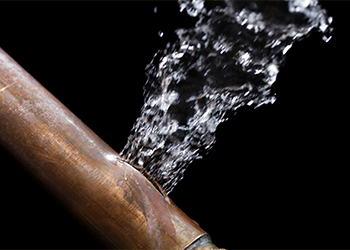 Protecting Your Home: Winter Tips to Prevent Burst Water Pipes
Protecting Your Home: Winter Tips to Prevent Burst Water Pipes
Winter brings with it picturesque snowfall and cozy evenings by the fireplace, but it also poses challenges for homeowners, particularly when it comes to protecting your pipes from freezing and bursting. Burst water pipes can lead to extensive damage and costly repairs. However, with some proactive measures, you can safeguard your home and prevent the nightmare of dealing with burst pipes during the winter months.
- Insulate Your Pipes: One of the most effective ways to prevent burst pipes is to insulate them properly. Focus on areas where pipes are exposed to colder temperatures, such as in basements, crawl spaces, and attics. Insulating sleeves or foam pipe wraps are readily available at hardware stores and can be easily installed. This additional layer of insulation helps retain the heat and keeps the pipes from freezing.
- Seal Gaps and Cracks: Inspect your home for any gaps or cracks that could allow cold air to seep in and reach your pipes. Use caulk or weather-stripping to seal these gaps in windows, doors, and any other openings. This not only helps in maintaining a warmer overall environment but also prevents cold air from reaching vulnerable areas where pipes are located.
- Keep the Heat On: Maintaining a consistent temperature inside your home is crucial during the winter months. Set your thermostat to a temperature that ensures warmth throughout the day and night, even when you’re away. This prevents the temperature inside your home from dropping to levels that could lead to frozen pipes. It may increase your heating bill slightly, but the cost is minimal compared to the potential damage from burst pipes.
- Allow Faucets to Drip: On extremely cold nights, allowing faucets to drip slightly can help prevent pipes from freezing. The movement of water, even a slow drip, makes it harder for the water to freeze. This is a simple yet effective precautionary measure that can be especially useful for pipes located along exterior walls or in unheated areas of your home.
- Disconnect and Drain Outdoor Hoses: Before the winter chill sets in, disconnect and drain all outdoor hoses. If left connected, water can freeze in the hoses and expand back into the pipes inside your home, causing them to burst. Storing hoses in a shed or garage during the winter is good practice.
- Open Cabinet Doors: For pipes located under sinks, especially those against exterior walls, open the cabinet doors to allow warmer air to circulate. This helps maintain a more consistent temperature around the pipes, reducing the risk of freezing.
- Invest in a Pipe Heating Cable: Consider installing a pipe heating cable, especially for pipes in areas that are particularly prone to freezing. These cables can be wrapped around the pipes and plugged in when needed, providing a controlled amount of heat to prevent freezing.
Conclusion: Protecting your home from burst water pipes during the winter requires a combination of insulation, temperature control, and proactive measures. By taking these steps, you can minimize the risk of frozen pipes and potential water damage, ensuring a safe and comfortable living environment throughout the winter months. Remember, a little prevention can go a long way in avoiding the headaches and expenses associated with burst water pipes.
Need expert help with your plumbing pipes in Asheville, NC? Contact us at HAYNES Plumbing Systems. We offer quality plumbing services at fair prices. Give us a call today!
